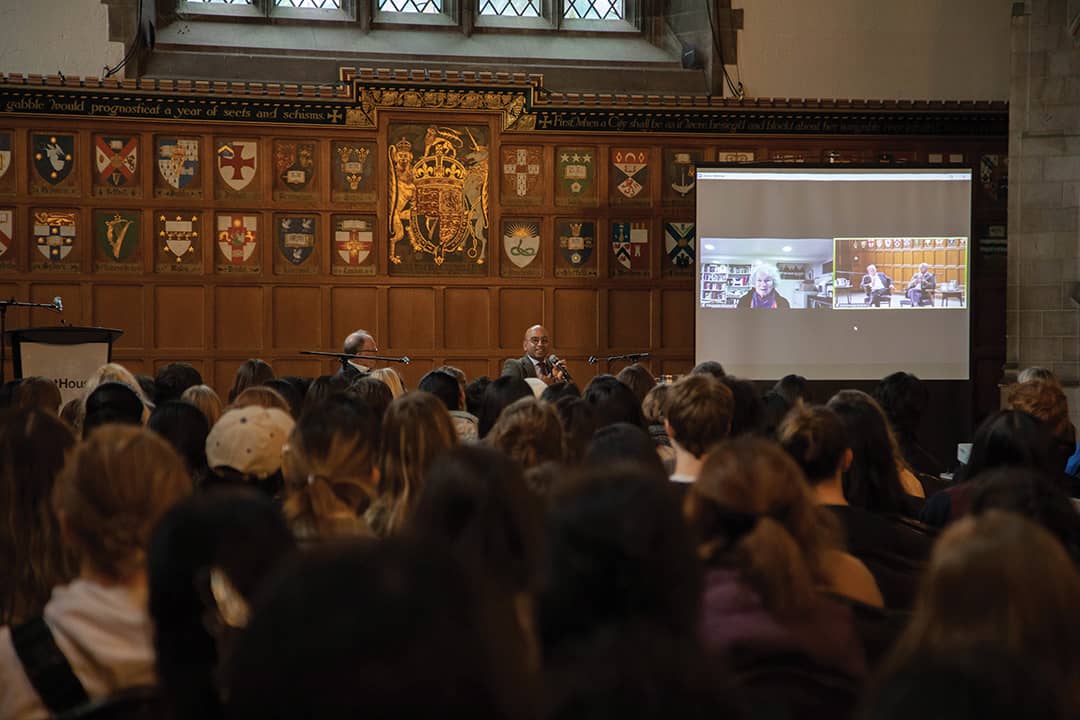I read Margaret Atwood’s The Handmaid’s Tale for the first time many years ago. By that point, I had read every young adult dystopian future novel I could find, but The Handmaid’s Tale stuck out to me for two reasons. Firstly, unlike the other novels I had read, Atwood’s work was just a step away from the world I was living in. Yes, it was fiction, but at least I was able to draw more parallels to my own world than I could when reading George Orwell’s 1984.
The second reason the book stood out to me is a collection of smallest, most minute details that I would never have thought of when imagining a world different from my own. For example, at one point the main character, Offred, describes saving some of the butter from her meal and hiding it in a sock. She then uses the butter as moisturizer because, of course, she wasn’t being provided with lotion.
Moments like this from the book made me realize the sheer amount of choice I am afforded. Every morning, I wake up and get to choose what clothes I want to wear, what brand and scent of shampoo I use, what I will eat for breakfast. Reading this made me realize the value in all of the little things we get to choose each day. So when I saw that Margaret Atwood was coming to U of T on September 28 to discuss the history and future of democracy with Professor Randy Boyagoda, I knew I had to go.
The highs and lows of democracy
Though the event was originally supposed to take place in person, students tuned in via livestream after Atwood caught COVID-19. Atwood and Boyagoda began by discussing the non-linear history of democracy as a political system.
Take, for example, the setting of The Handmaid’s Tale: Cambridge, Massachusetts. Atwood pointed out that nothing that happened in her novel hadn’t already happened in the world, yet she purposefully selected a seemingly unlikely place for these events to occur.
Massachusetts was a liberal democracy in the 1980s, when Atwood was writing the novel. But just a little over 200 years earlier, the region was governed by a strict puritan theocracy. Atwood noted that in just a short period of time, a democracy can be built or can crumble.
Being American myself, my steadfast trust in our democracy has broken down in the last decade. And it seems that I’m not alone in thinking so — many at the event drew comparisons between the fictional nation of Gilead and Trump’s America. It seems impossible to me that a country so divided can continue to rely on a form of government that is built on compromise.
But Atwood took a more holistic approach to these types of fears. She pointed out that factionalism, like we are seeing today, is not new, and that focusing on the words we use to separate one group from another will help us navigate uncertain times. It is much easier to use harsh, aggressive language with others in the anonymized world of the internet. It is also easier for our words to be misinterpreted or misconstrued. We must, especially today, understand the weight of our words.
University student ennui
Like others my age, I’m often faced with a sense of dread and impending doom about our future. How am I supposed to feel hopeful and excited about the future when it seems so steeped in the negatives? But like Atwood pointed out, nothing is certain or going to last forever: “There is no yellow brick road that leads inevitably to the Emerald City of Oz.”
My fears might not be new, but they do connect me to a broader student community with a history of challenging these fears and uncertainties. In accordance with that sentiment, Arts & Science Students’ Union (ASSU) President Fatemeh Nami ended the event with some brief remarks.
Nami drew attention to the historical importance of universities in making room for discussions just like these. She referenced her work at the ASSU on university policy and Palestinian advocacy on campus as examples. She expressed that she hoped these initiatives play a part in upholding the ideals discussed at the event.
In the end, I think the main takeaway from the event is that nothing is guaranteed, especially democracy. Universities and young people need to make space for open dialogues about the state of our government here in Canada and the governments surrounding us. We must learn to value our words, and the words of others, and we must not take the liberties afforded to us every day for granted. We should work to uphold the ideals that we value, and encourage those around us to do the same.


